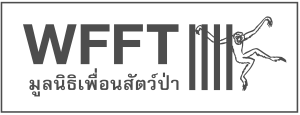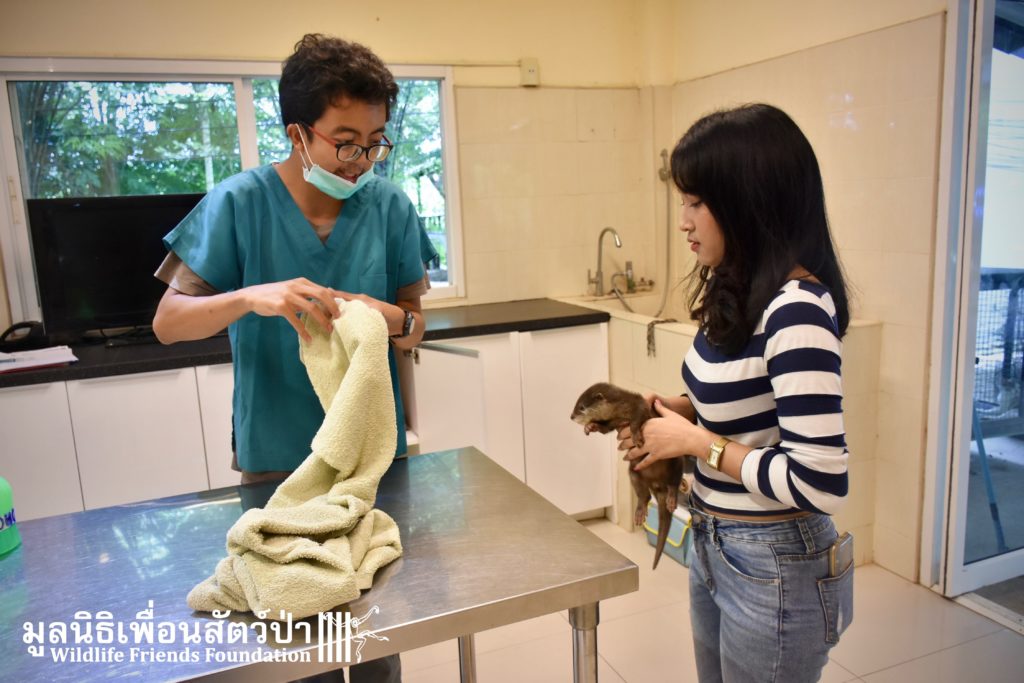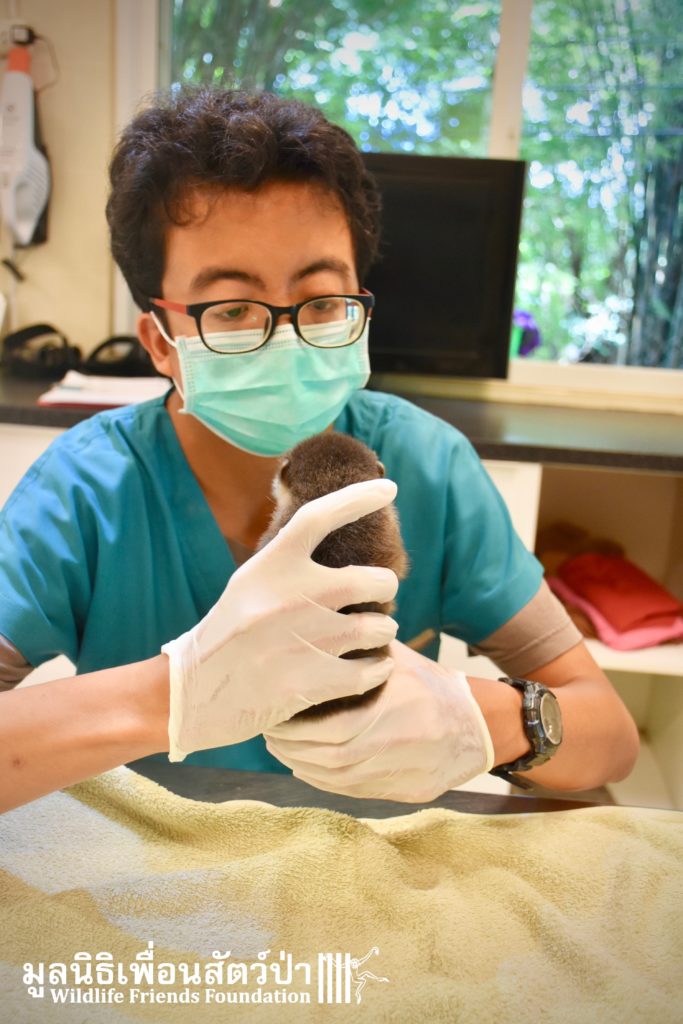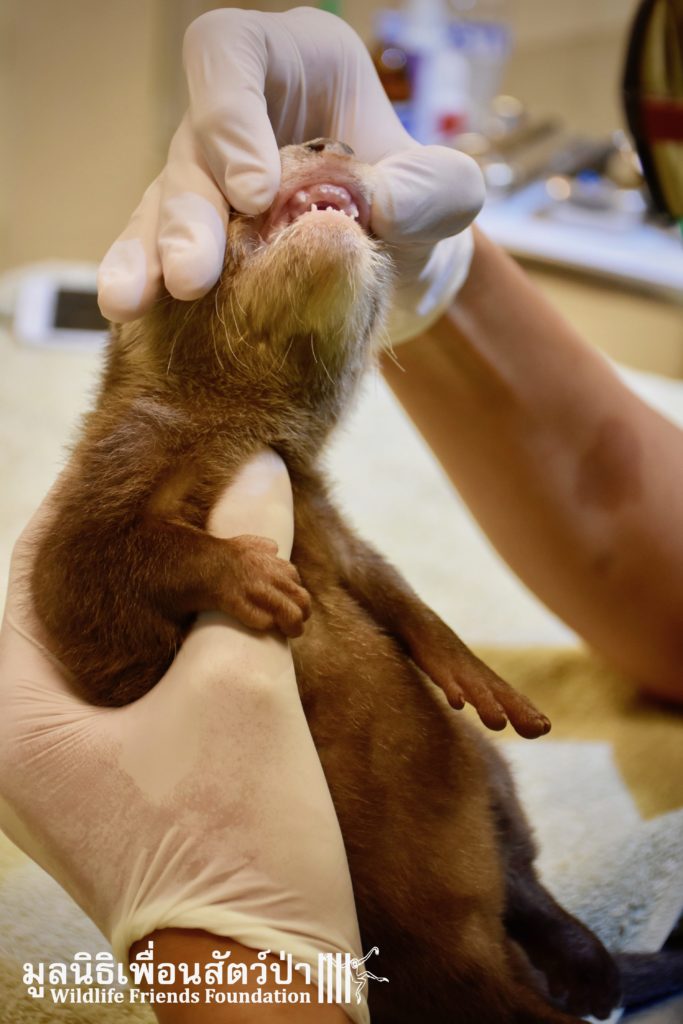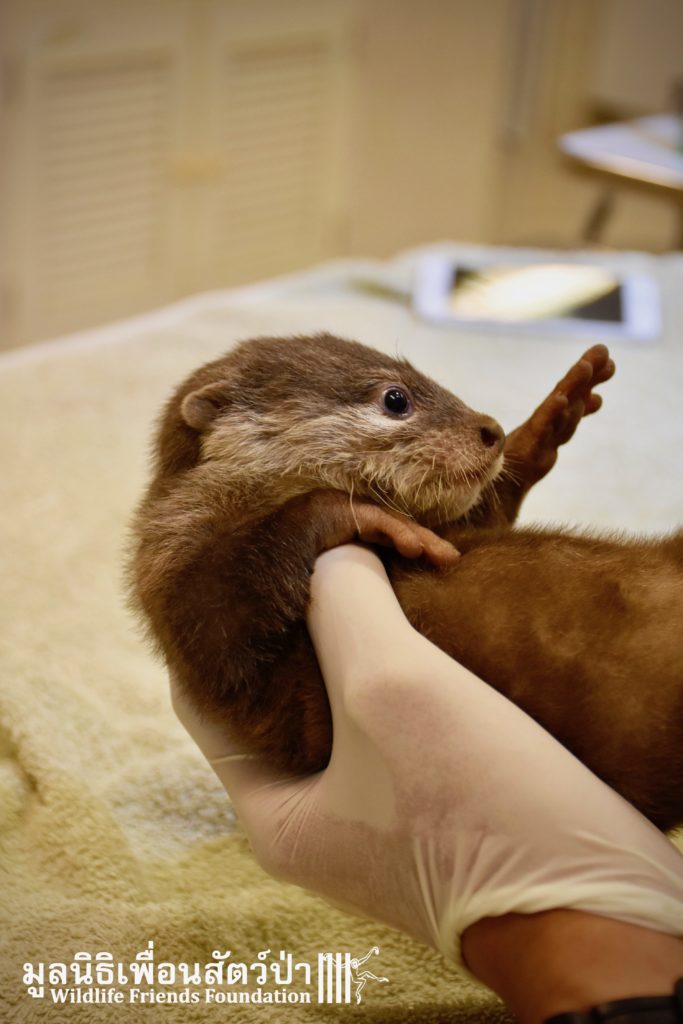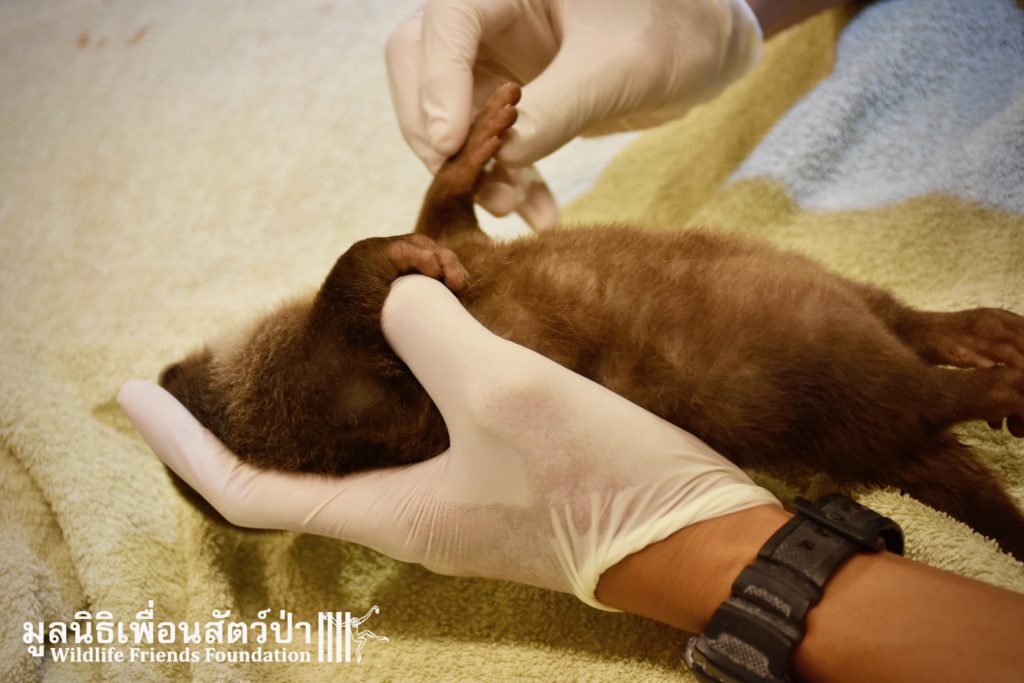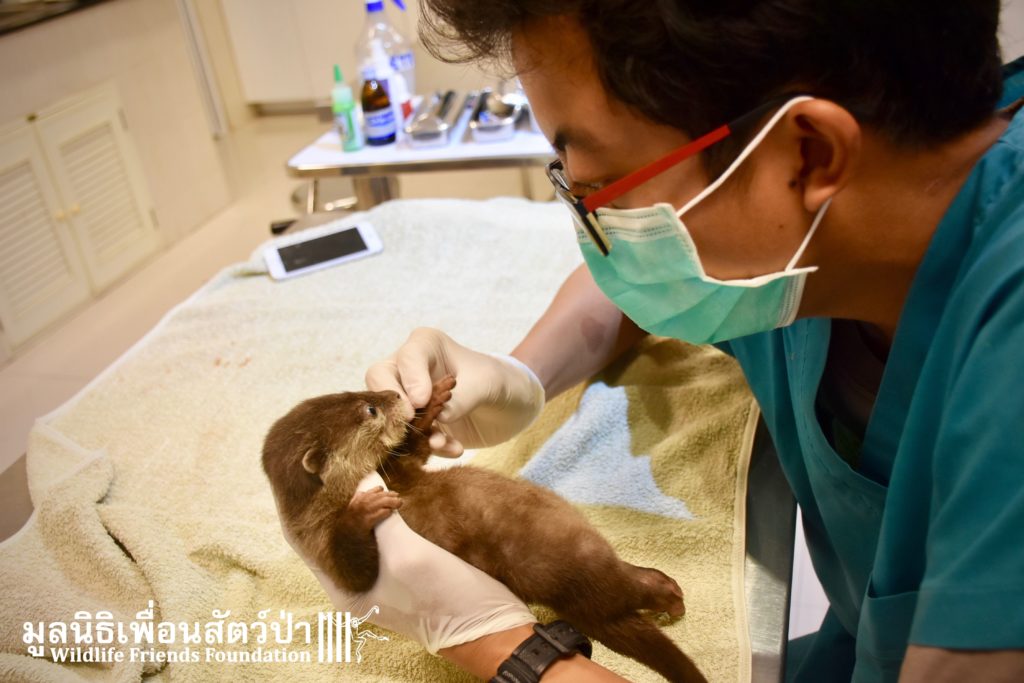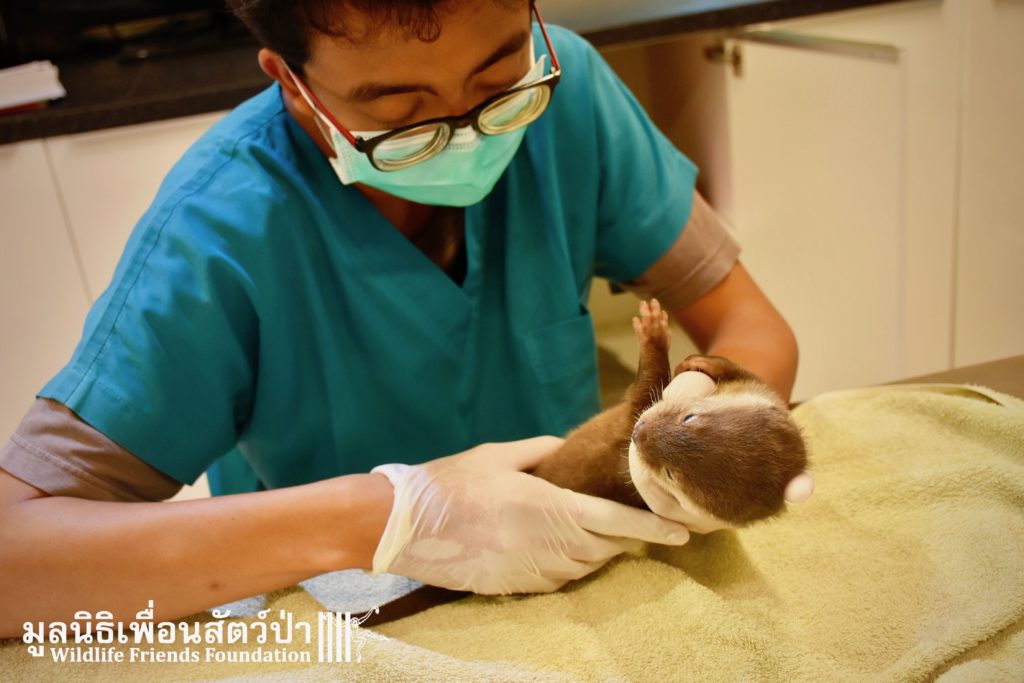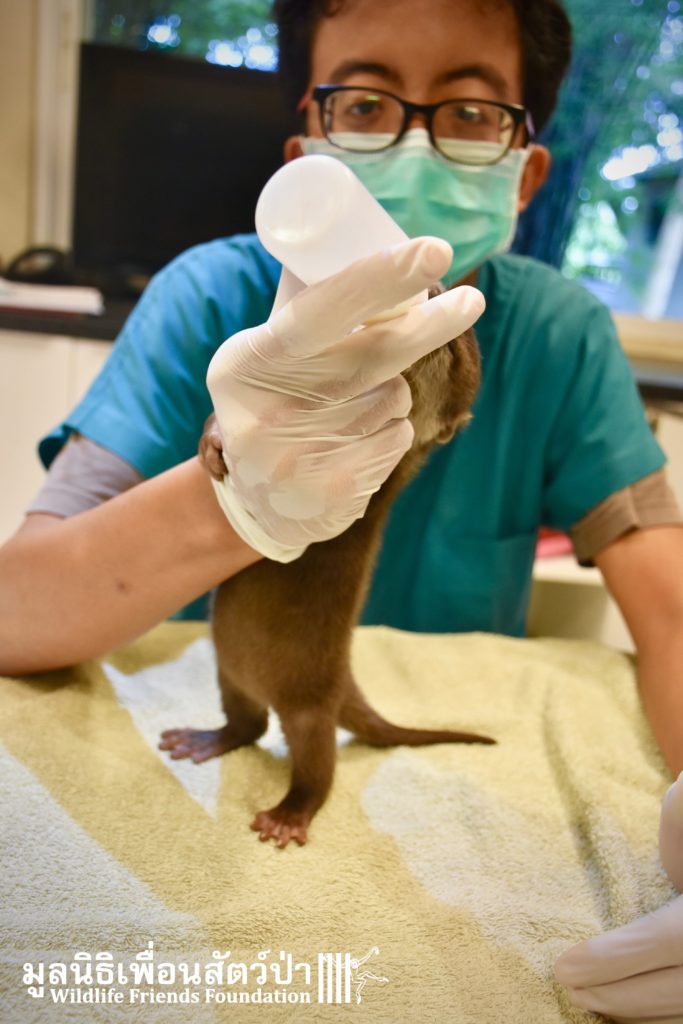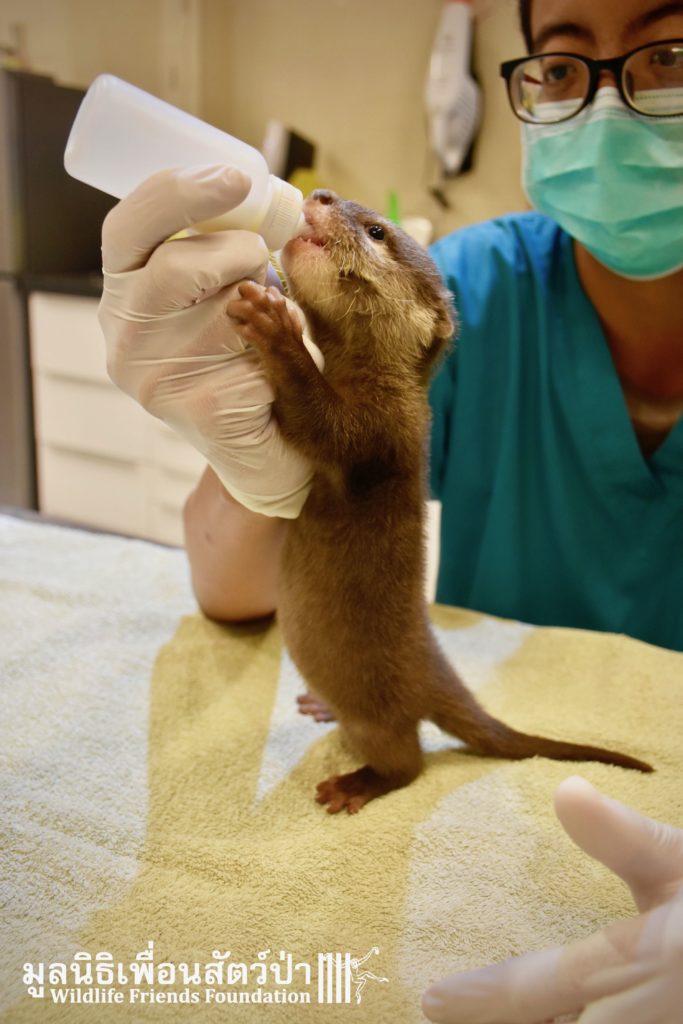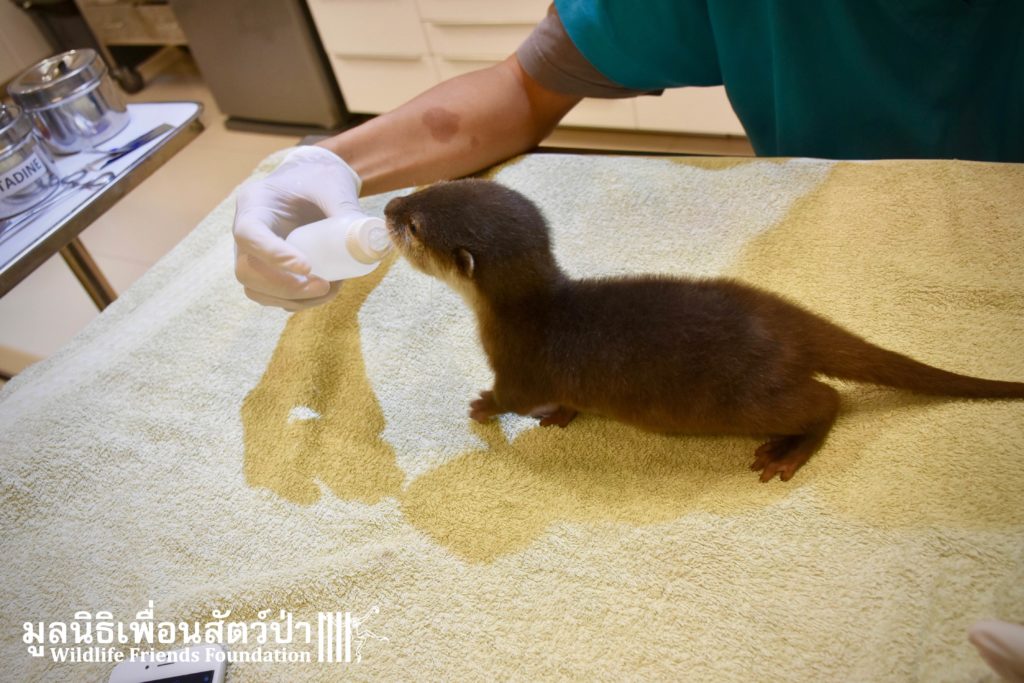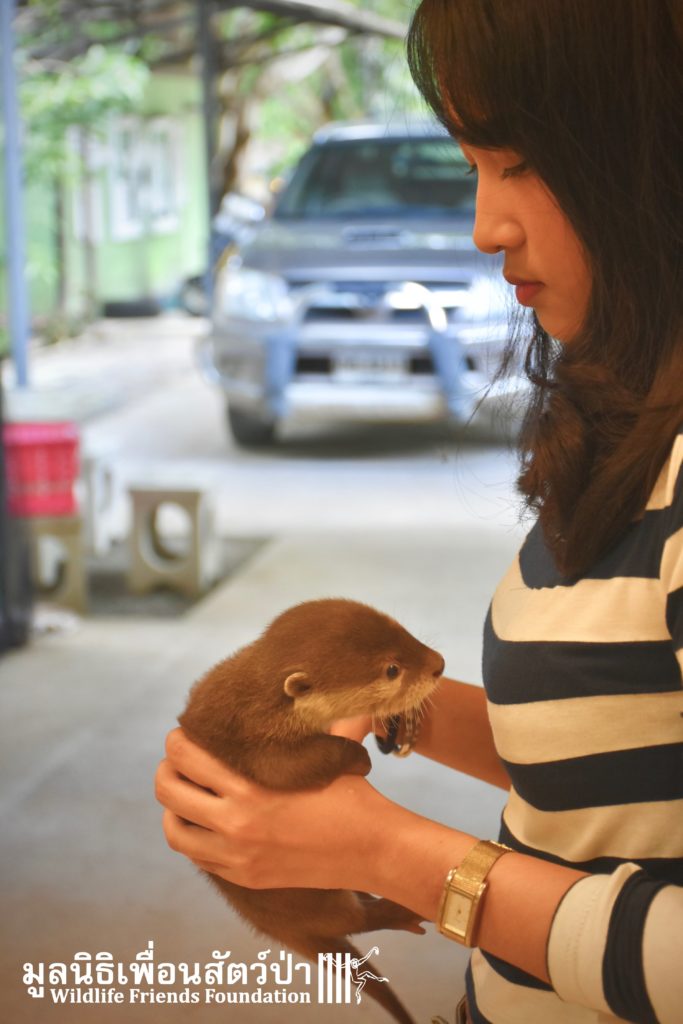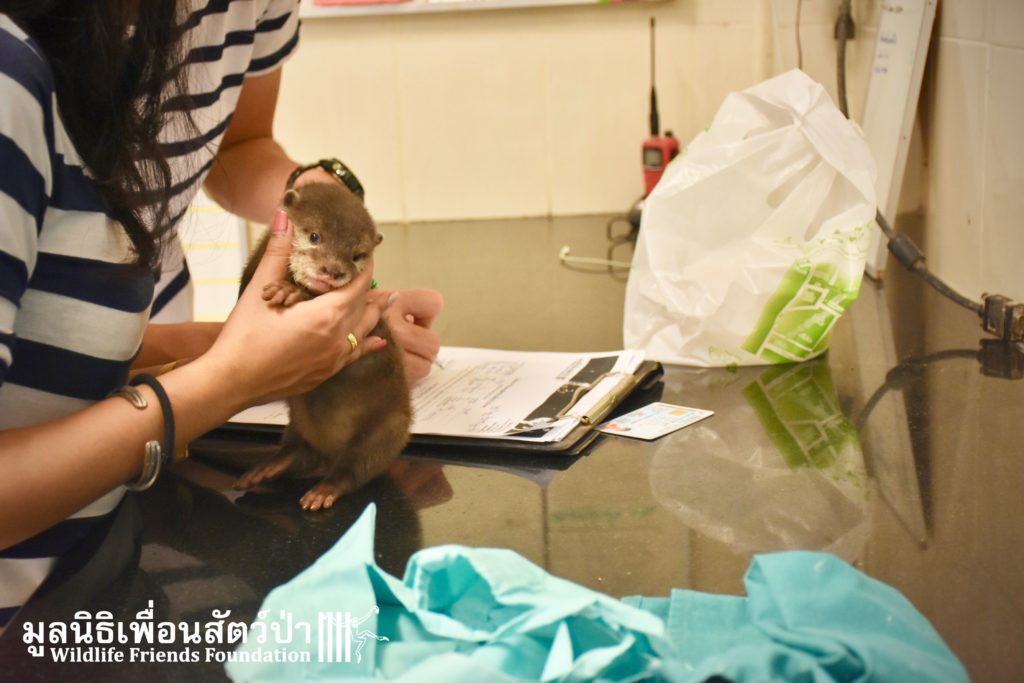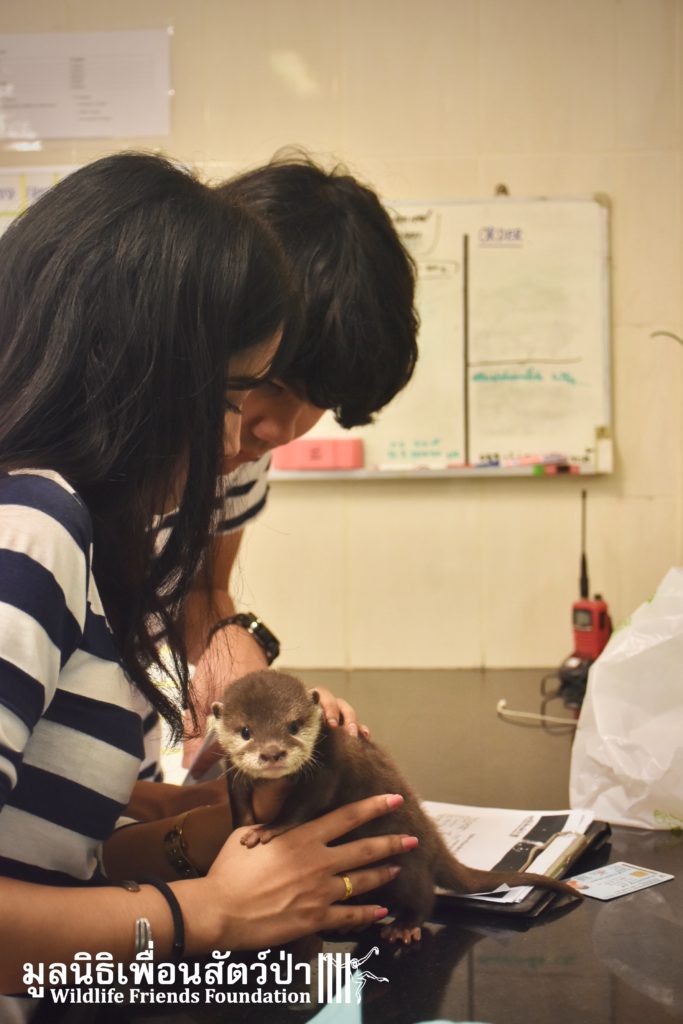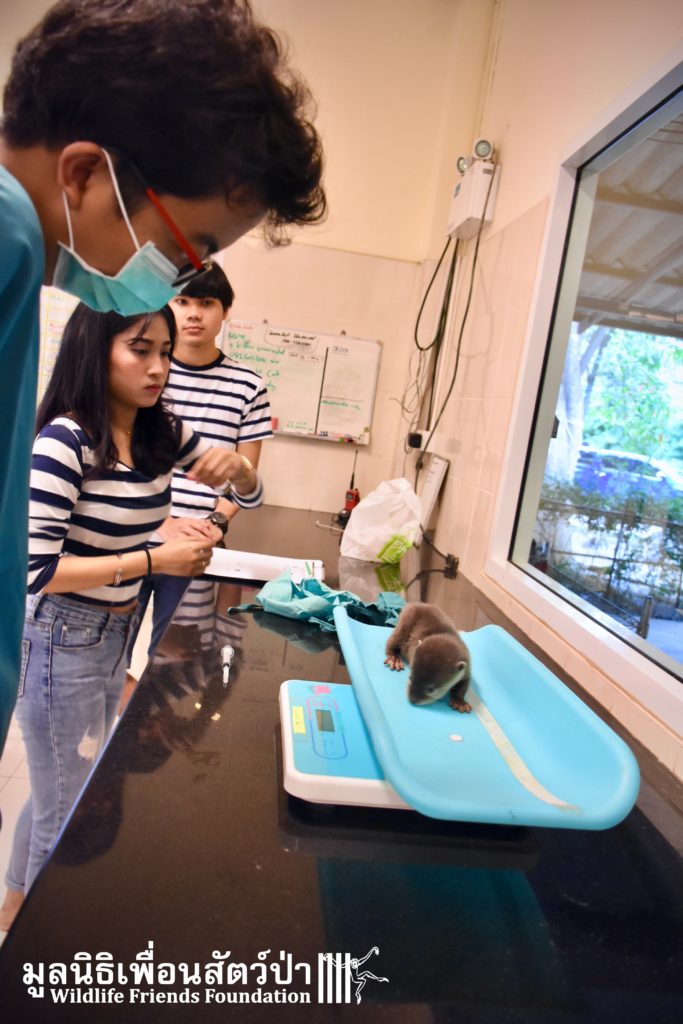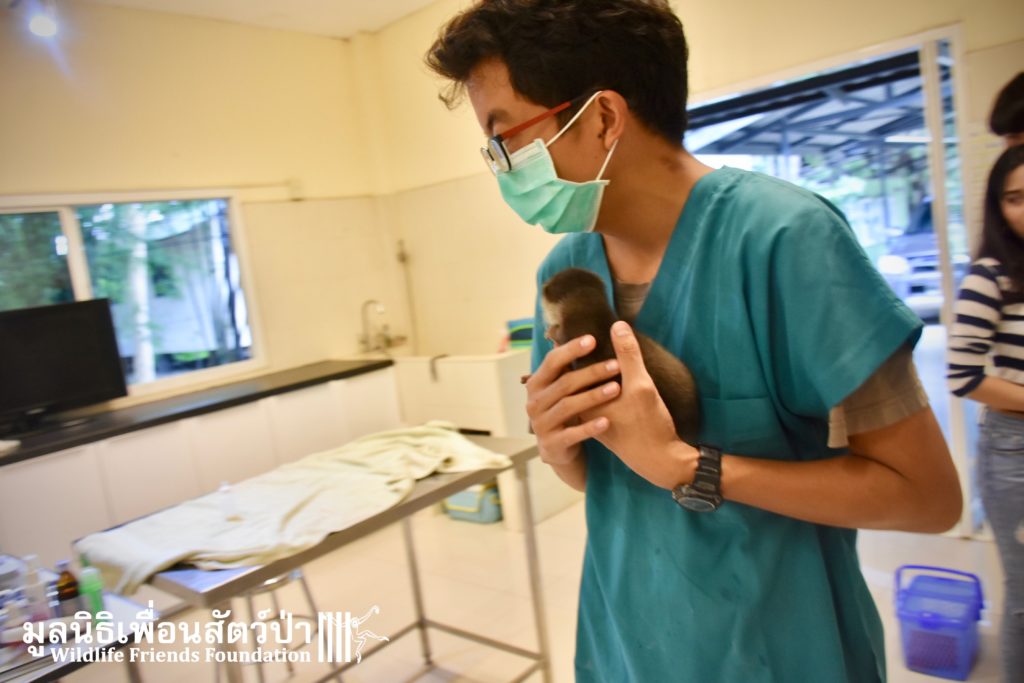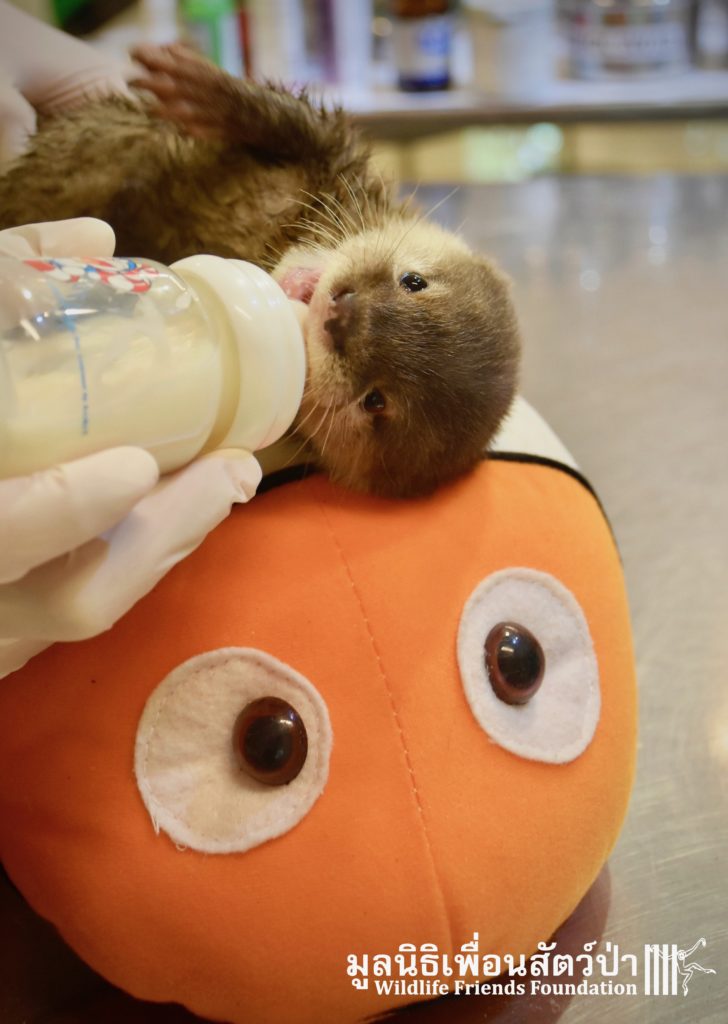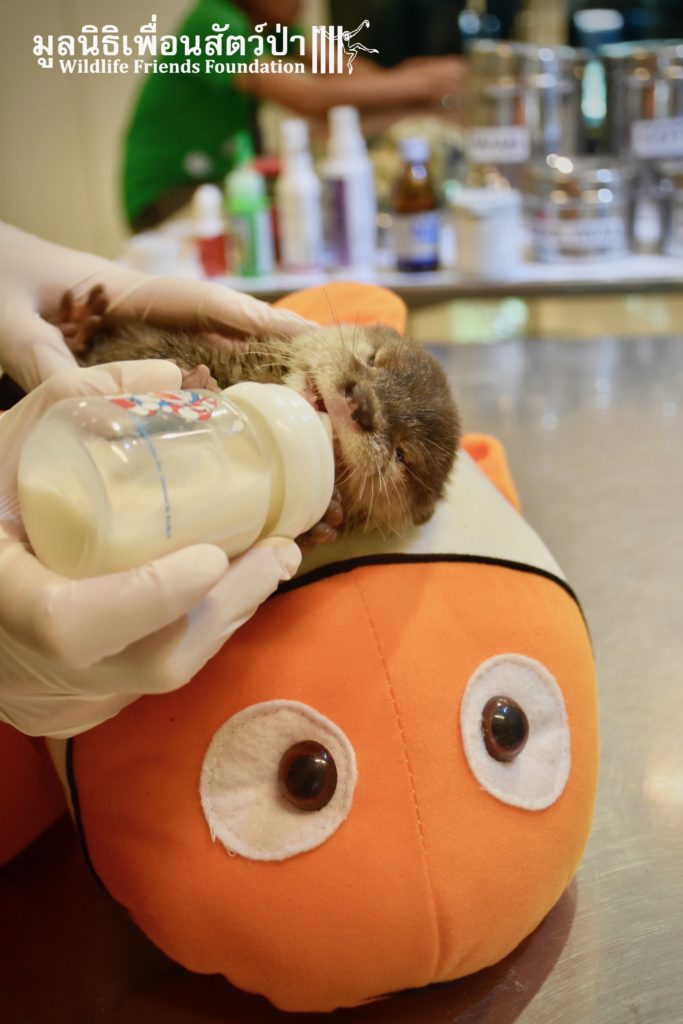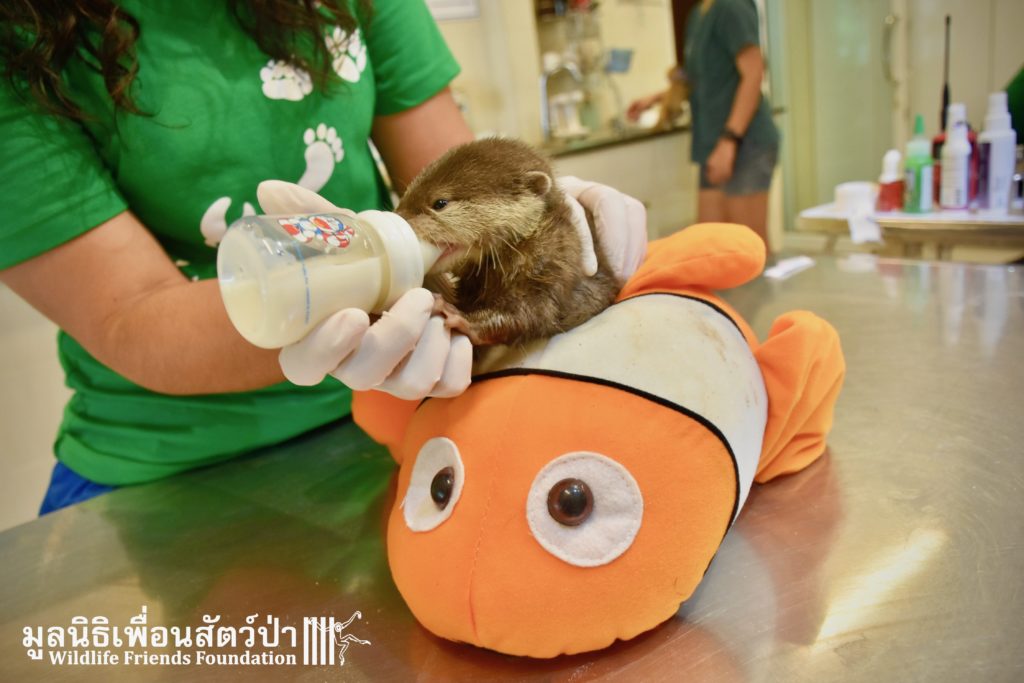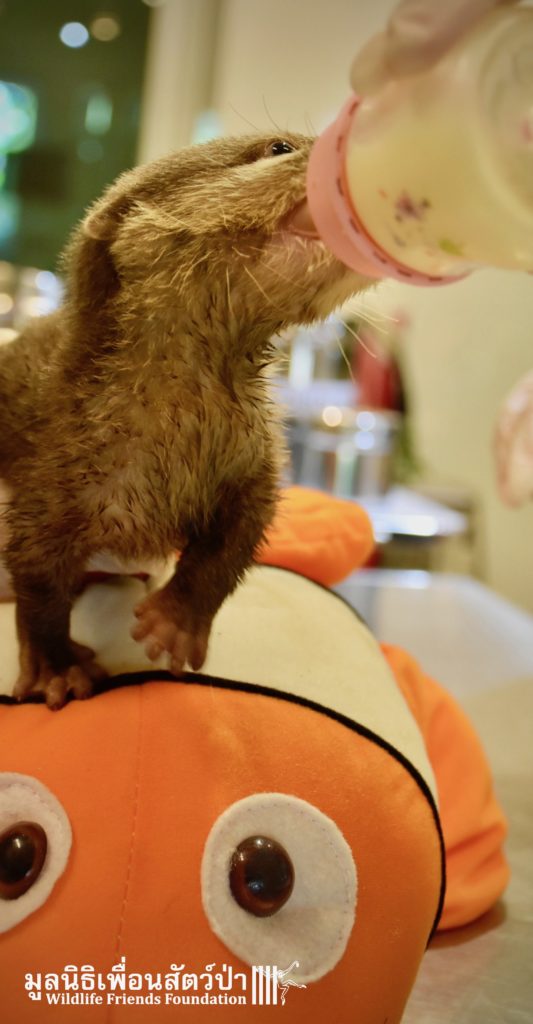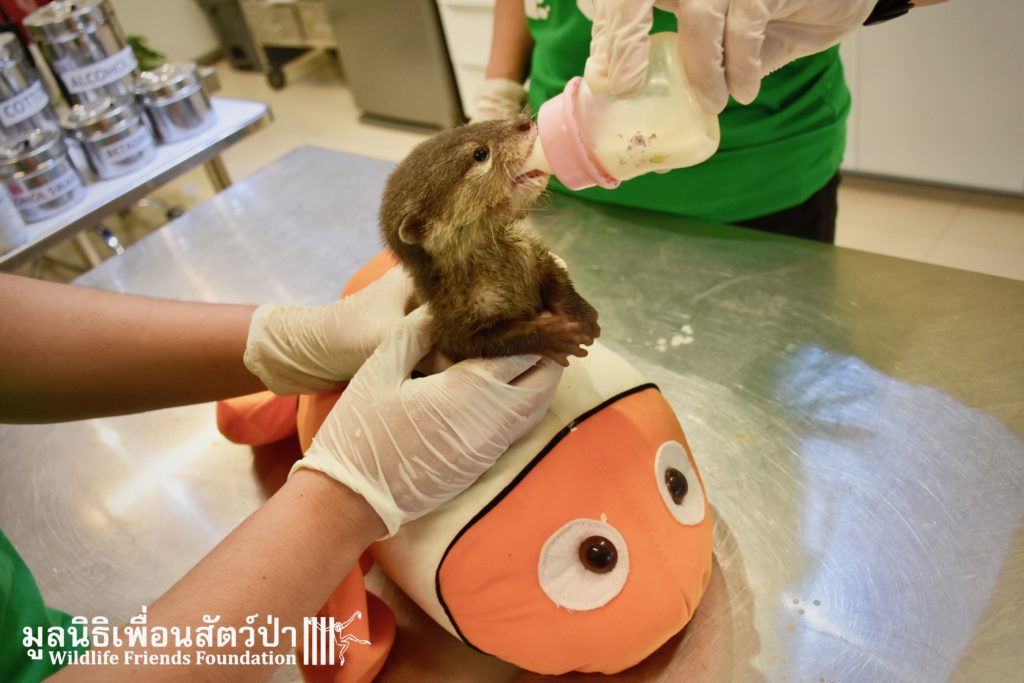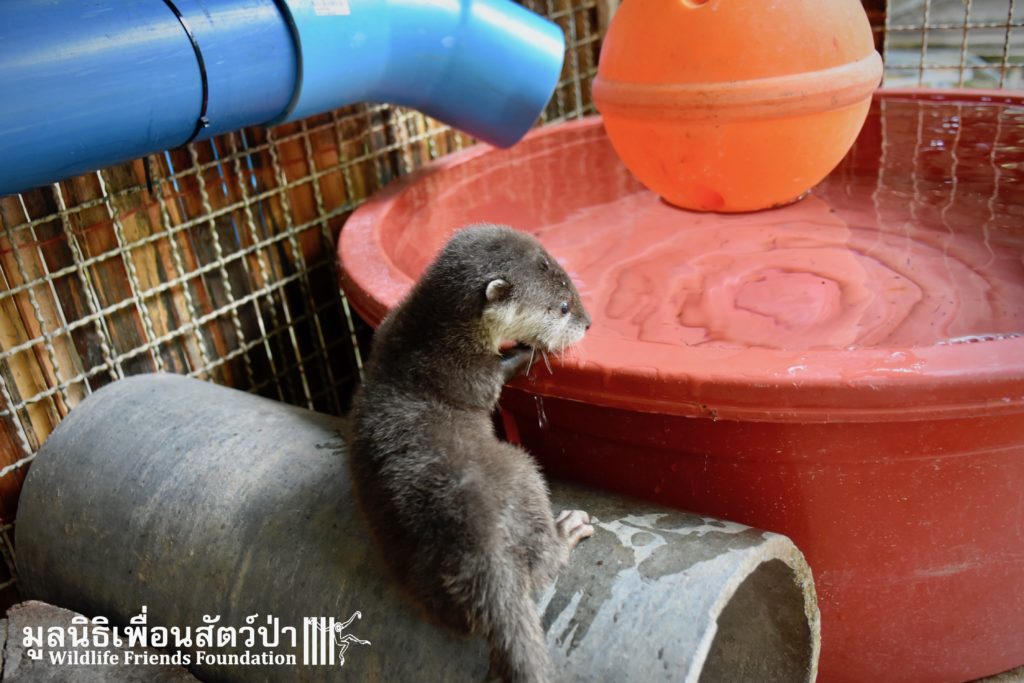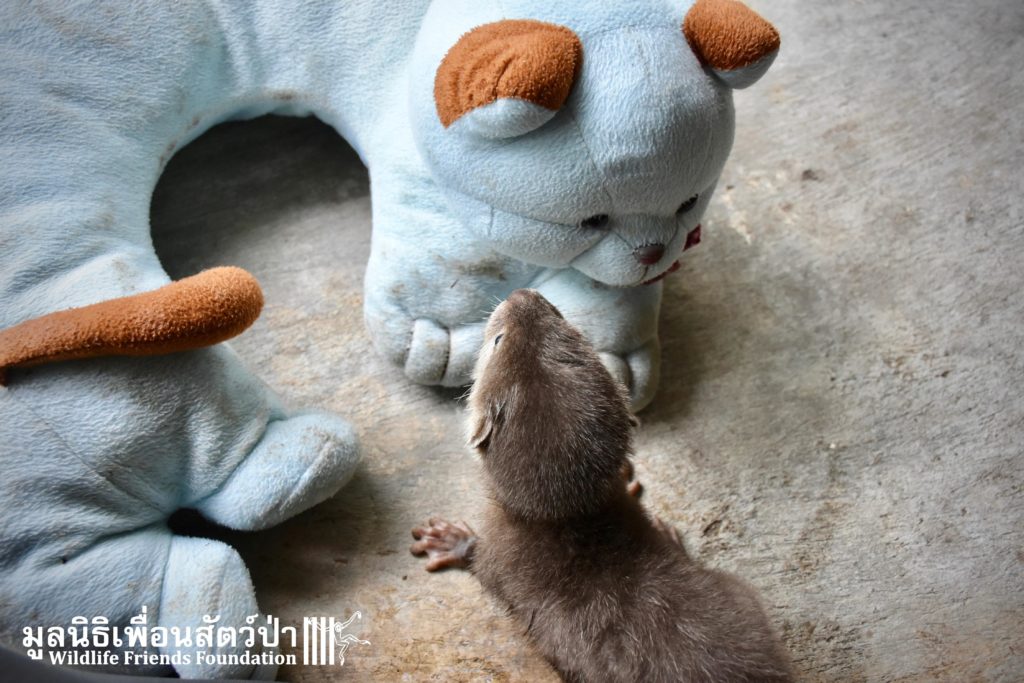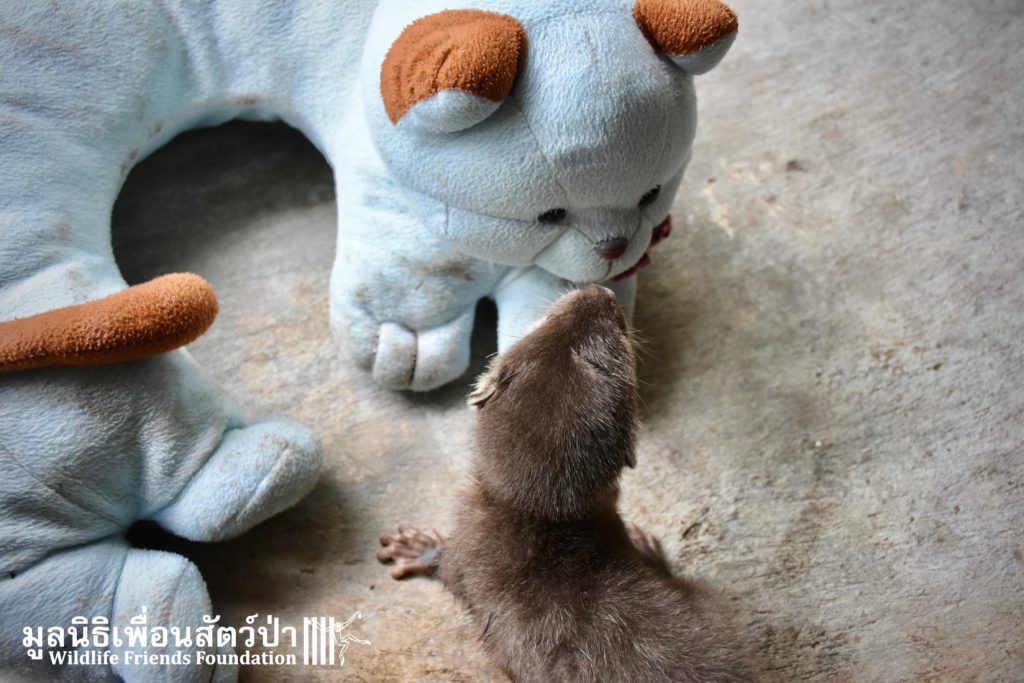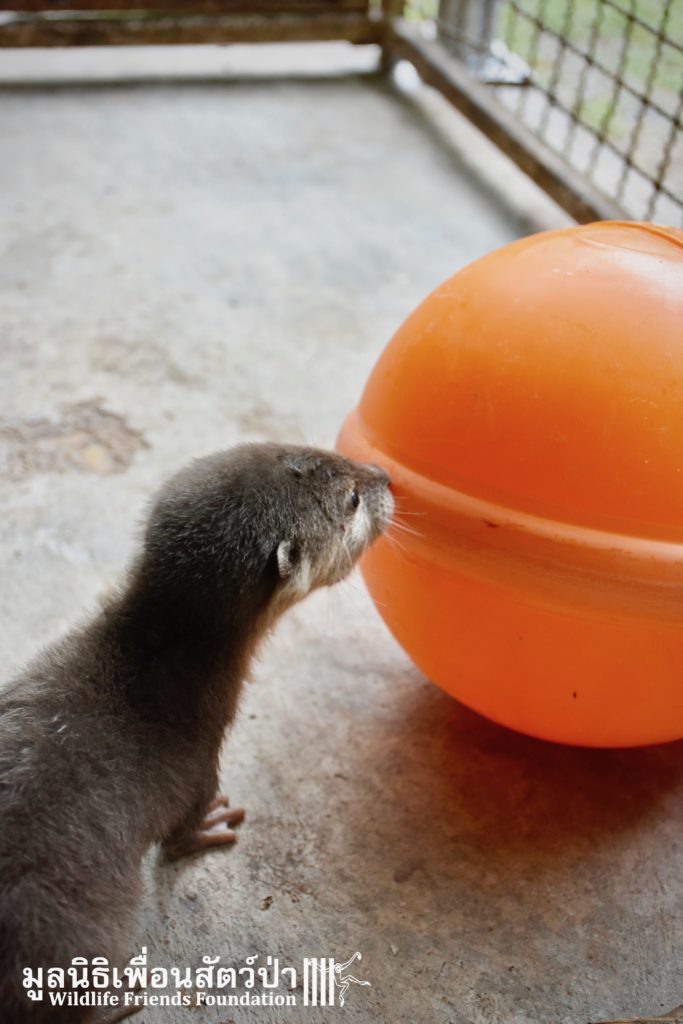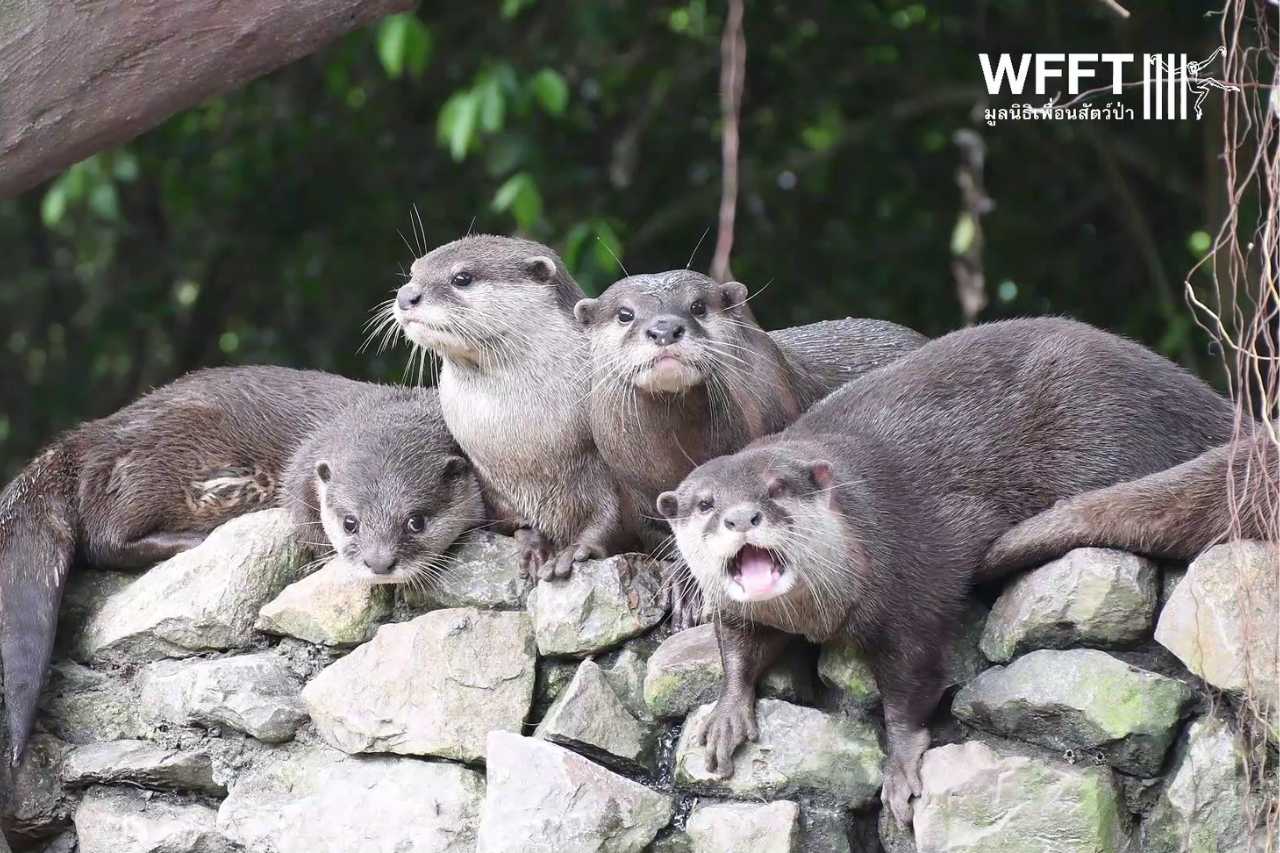Three of the four otter species native to Thailand are either endangered or vulnerable. Watch our World Otter Day 2024 video to learn more.
Toro – Another poor victim of the Illegal Wildlife Pet Trade
Yesterday some people from Samut Sakorn brought a baby female short-clawed otter (Aonyx cinerea) into the WFFT Wildlife Rescue Centre. They had been keeping her as pet for the past two weeks after buying her from one of their friends, she was six week sold when they bought her. They called the little one Toro. They did not expect that Toro would require such specialist care, and be rather loud and smelly. Annoyed by the constant calls for her mother they decided to bring her to WFFT. After an initial health check Toro seems in good health. She had been fed only goats milk, so it will take us some time to adjust her diet.This little orphan will require months of round-the-clock care from the WFFT Vet Team. We hope that in the future she can live with her own species once again.
Oriental small-clawed otters are currently listed as Vulnerable (VU) by the IUCN Red List of Threatened Species. Throughout Asia the main threat to their survival is habitat destruction due to changing land use pattern in the form of developmental activities. In many parts of Asia, the habitats have been reduced due to reclamation of peat swamp forests and mangroves, aquaculture activities along the intertidal wetlands and loss of hill streams. Another important threat to Asian Small-clawed Otter is reduction in prey biomass due to over-exploitation, which make its remaining habitats unsustainable. Pollution is probably the single most important factor, causing decline in the population of many fish species. The threat posed by poaching, for the fur trade and pet trade, is still very significant in many parts of South East Asia and will certainly count as a major threat that needs to be constantly monitored. Sadly, an increase in keeping these animals as pets has been seen throughout Thailand. We are hearing reports of otter ‘farms’ where many are being specifically bred for the pet trade.
